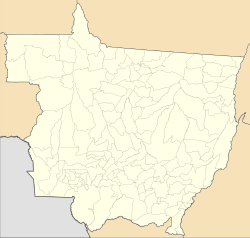The Brazilian municipal elections of 2012 took place on October 7 and on October 28. Over 138 million voters chose mayors, deputy mayors and city councillors for the 5,568 municipalities of Brazil. These were the first elections in which the recently registered parties Partido Pátria Livre (PPL) and Partido Social Democrático (PSD) participated; they were both recognized by the Superior Electoral Court in 2011. Political parties whose candidates wished to run for the 2012 elections had to be registered at the TSE for at least one year before the election date, while candidates also had to be affiliated to a party for the same period of time. Conventions for the selection of candidates within the parties occurred between 10 and 30 June, while the registry of candidates and alliances with the Regional Electoral Courts took place until July 5. Electoral campaign was authorized from the moment a candidacy had been registered. The free electoral program – two daily slots on free-to-air TV and radio for political advertising paid by the Electoral Justice fund – ran weekdays from 21 August until 4 October. According to the current Brazilian electoral law, the two-round system – should the leading candidate receive less than 50% +1 of the votes – is only available for cities with more than 200,000 voters. This includes all state capitals, with the exception of Boa Vista, Roraima and Palmas, Tocantins, plus 59 other municipalities. The free electoral program for the second round ran from 13 October until 26 October.
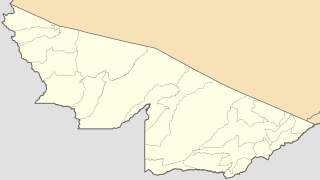
The first round of the Acre gubernatorial election was held on 5 October 2014 to elect the next governor of the state of Acre. No candidate won 50% of the vote and thus a second-round runoff election was held on 26 October. Governor Tião Viana was re-elected for a second term.

The Maranhão gubernatorial election was held on 5 October 2014 to elect the next governor of the state of Maranhão in Brazil. If no candidate had received more than 50% of the vote, a second-round runoff election would have been held on 26 October. Governor Roseana was ineligible to run due to term limits. Former Embratur President Dino, who lost to Sarney in 2010, won a landslide election against Senator Lobão Filho to become the sole Governor from one of the two Communist parties.

The Paraná gubernatorial election was held on 5 October 2014 to elect the next governor of the state of Paraná. Governor Beto Richa successfully ran for reelection, winning without the need for a runoff.

The Espírito Santo gubernatorial election was held on 5 October 2014 to elect the Governor of the state of Espírito Santo. Governor Renato Casagrande lost a bid for a second term to former Governor Paulo Hartung.

The Rondônia gubernatorial election was held on 5 October 2014 to elect the next governor of the state of Rondônia. If no candidate receives more than 50% of the vote, a second-round runoff election will be held on 26 October. Governor Confúcio Moura is running for a second term. Confúcio Moura won the election.
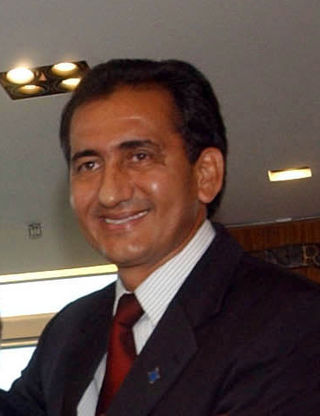
The Amapá gubernatorial election was held on 5 October 2014 to elect the next governor of the state of Amapá. Since no candidate received more than 50% of the vote, a second-round runoff election was held on 26 October. Governor Camilo Capiberibe ran for a second term and was forced into a runoff with former Governor Waldez Góes.
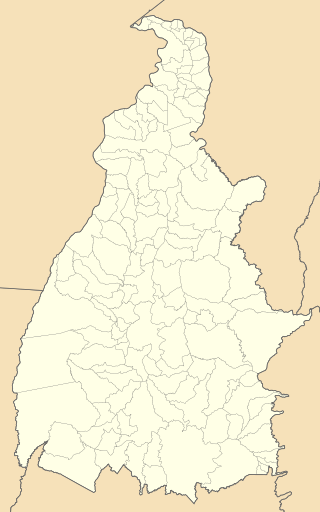
The Tocantins gubernatorial election was held on 5 October 2014 to elect the next governor of the state of Tocantins, Brazil. If no candidate had received more than 50% of the vote, a second-round runoff election would have been held on 26 October. Governor Sandoval Cardoso ran for his first full term after becoming governor in 2014, but lost to former Governor Marcelo Miranda in the first round.

Reinaldo Azambuja Silva is a Brazilian politician and businessman who served as the 11th Governor of Mato Grosso do Sul from 2015 to 2022. In elections in Mato Grosso do Sul in 2014 he ran for governor, came in second place in the first round and won the election in the second round against the candidate Delcídio Amaral.
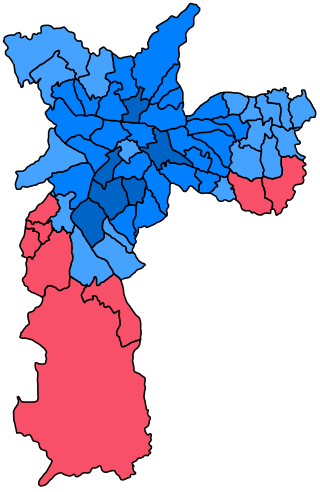
The 2020 São Paulo municipal election took place in the city of São Paulo, Brazil, with the first round taking place on 15 November 2020 and the second round taking place on 29 November 2020. Voters voted to elect the Mayor, the Vice Mayor and 55 city councillors for the administration of the city. The result was a 2nd round victory for incumbent Mayor Bruno Covas of the Brazilian Social Democratic Party (PSDB), winning 3,169,121 votes and a share of 59,38% of the popular vote, defeating political activist Guilherme Boulos of the Socialism and Liberty Party (PSOL), who took 2,168,109 votes and a share of 40.62% of the popular vote.

Carlos Henrique Baqueta Fávaro is a Brazilian farmer and politician. In April 2018, he resigned from the office of Vice Governor of Mato Grosso.
Gubernatorial elections were held in Brazil on 2 October 2022 as part of the nationwide general elections to elect tickets with state governors and their vice governors. A second round was held on 30 October for states where no candidate was able to secure more than half of the votes in the first round.
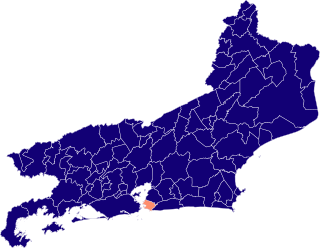
The 2022 Rio de Janeiro state election took place in the state of Rio de Janeiro, Brazil on 2 October 2022. Voters elected a governor, vice governor, one senator, two alternate senator, 46 representatives for the Chamber of Deputies, and 70 Legislative Assembly members, with a possible second round to be held on 30 October, 2022. Under the Constitution of Brazil, the governor will be elected for a four-year term starting 1 January 2023. and with the approval of Constitutional Amendment No. 111, it will end on 6 January, 2027.
The 2022 Rio Grande do Sul state election took place in the state of Rio Grande do Sul, Brazil on 2 October 2022. Voters elected a Governor, Vice Governor, one Senator, 31 representatives for the Chamber of Deputies and 55 Legislative Assembly members, with a possible second round to be held on 30 October 2022. Former governor Eduardo Leite, was eligible for a second term and announced that he's running for reelection.
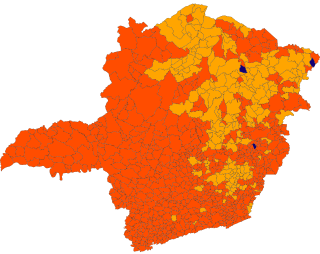
The 2022 Minas Gerais state elections took place in the state of Minas Gerais, Brazil on 2 October 2022. Voters elected a governor, vice governor, one senator, 53 representatives for the Chamber of Deputies, and 77 Legislative Assembly members. The incumbent governor, Romeu Zema, a member of the New Party, was eligible for a second term, and intended to run for reelection.
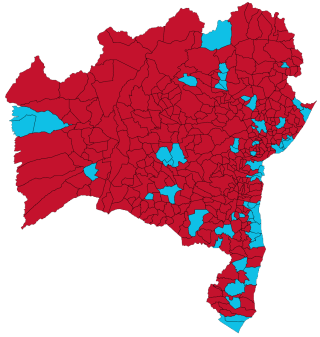
The 2022 Bahia state election took place in the state of Bahia, Brazil on 2 October 2022. The elections saw voters choose a Governor and Vice Governor, one Senator, 39 representatives for the Chamber of Deputies, and 63 Legislative Assembly members. The incumbent Governor, Rui Costa, of the Workers' Party (PT), was not eligible for a third term since he ran for governor in 2014 and 2018. In a significant upset, PT nominee and Secretary of Education Jerônimo led Mayor of Salvador ACM Neto in the first round of elections despite the vast majority of registered opinion polls indicating the leadership or even outright victory of Neto. In the end, Jerônimo obtained 49.45% of valid votes to ACM's 40.8%; less than a percentage point within of winning the election in the first round. Nevertheless, as no candidate obtained a majority of the vote, there will be a second round election on October 30 2022.

Eduardo Corrêa Riedel is a Brazilian politician who is the 12th and current Governor of Mato Grosso do Sul. A member of the Brazilian Social Democracy Party, he previously served as the 27th Secretary of State for Infrastructure and Housing in Mato Grosso do Sul from 2021 to 2022 under Government Reinaldo Azambuja and 20th Secretary of State for Government and Strategic Management of Mato Grosso do Sul from 2015 to 2021.

The 2022 Mato Grosso do Sul state election took place in the state of Mato Grosso do Sul, Brazil between 2 October 2022 and 30 October 2022. Voters elected a governor, vice governor, a senator, 8 representatives for the Chamber of Deputies of Brazil and 24 Legislative Assembly members. The incumbent governor at the time, Reinaldo Azambuja, wasn't allowed to run for reelection for a third consecutive time due to term limits established by the Federal Constitution of Brazil.
A mayoral election in Campo Grande was held on 6 October 2024. Voters will elect a mayor, vice-mayor and 29 councilors for a four-year term.

Lúdio Frank Mendes Cabral is a Brazilian doctor and politician. Affiliated with the Workers' Party (PT), he is currently a state deputy in the state of Mato Grosso.
